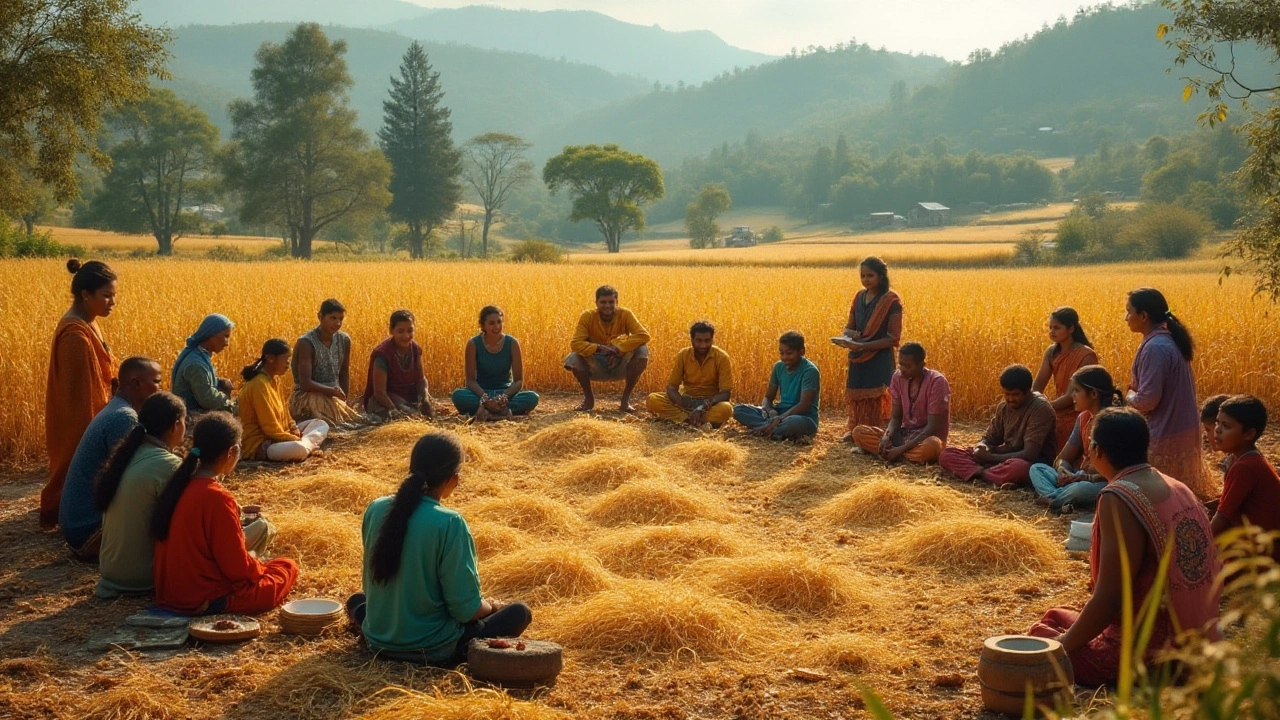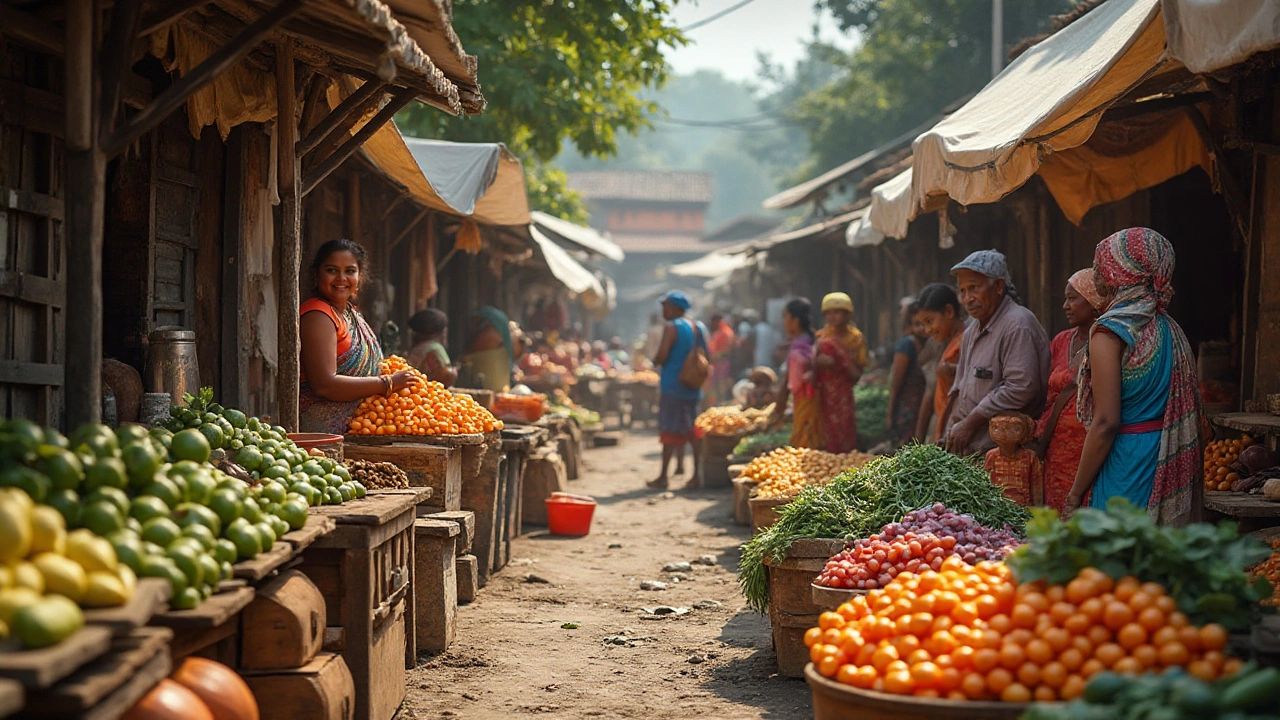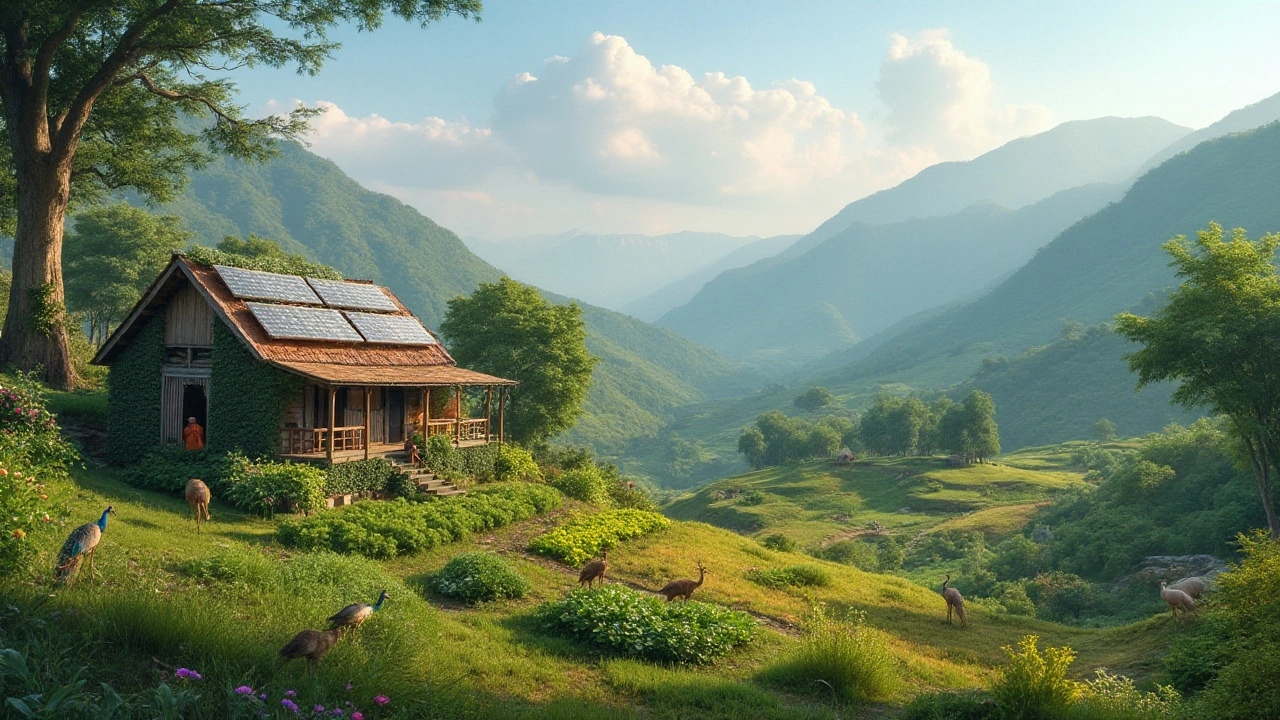Dreaming of leaving behind the hustle and bustle of city life? For many, the idea of living off the land has become an alluring prospect. The journey towards self-sufficiency can be as fulfilling as it is challenging.
Understanding which US states lend themselves best to off-grid and homesteading lifestyles requires digging into various factors. From climates that foster year-round cultivation to local laws that support independent living, not every state is created equal in this realm.
Adventurous souls should consider what kind of environments they thrive in. Be it the rolling hills of the Midwest or the expansive forests of the Pacific Northwest, each state offers its own unique set of benefits and hurdles to overcome. In this article, we'll explore some of the finest spots where individuals and families can truly live off the land, with insights into successful self-sufficient living.
- Key Considerations for Off-Grid Living
- Top States for Self-Sufficient Living
- Climate and Natural Resources
- Community and Legal Support
- Success Stories and Insider Tips
Key Considerations for Off-Grid Living
Venturing into the realm of off-grid living isn't just a lifestyle change; it's a profound commitment to independence and self-reliance. Whether it's a cozy cabin nestled in the woods or a solar-powered farmhouse on sprawling acreage, each journey begins with careful planning. The first step often involves discerning personal motivations. What drives this desire to move away from urban conveniences? Is it a yearning for a more sustainable life, a closer bond with nature, or simply a quest for greater solitude? Understanding these could save one from unexpected setbacks.
One crucial aspect to consider is access to natural resources. A reliable water source is perhaps the most critical, so identifying whether a potential property has a creek, river, or sufficient rainfall for collection is essential. Renewable energy sources, like solar or wind, are also important considerations. With technological advancements, harnessing these resources is more feasible than ever. The land should ideally be fertile enough to support agriculture, allowing for growing vegetables, fruits, and perhaps even sustaining livestock. Learning the local climate helps in planning what to plant and when, ensuring a fruitful harvest season.
Choosing the right real estate involves evaluating legal and regulatory factors. Research about zoning laws, building codes, and water rights can save many future headaches. Each state has its own set of rules that could either support or hinder an off-grid setup. It's recommended to consult local authorities or connect with a community of like-minded individuals who already inhabit the area. Having legal clarity on issues like land-use rights and environmental protections can greatly influence the initial planning stages.
"Living off the land is a dance with nature – you follow her rhythms, and she rewards you. Understanding the laws and climate before diving in makes the journey smoother," says renowned homesteader John Seymour.
Community is another important factor to think about. Although living off the grid infers a level of isolation, having a supportive network can aid tremendously in emergencies or moments of uncertainty. Neighbors who share tools, knowledge, and even a simple willingness to help can make a significant difference. This becomes more apparent during those initial months when everything feels new and daunting. Joining or forming a local community of homesteaders can provide a wealth of shared tips and tricks to make the transition smoother.
Finally, one shouldn't underestimate the necessity of skills and self-sufficiency knowledge. Having a broad skill set in areas like plumbing, carpentry, gardening, and animal husbandry can drastically reduce dependency on outside help. Those with an entrepreneurial spirit might consider developing crafts or produce for trade with neighbors or local markets. Not to forget, preparedness for contingencies like extreme weather or medical emergencies is also pivotal. Regular practice and updating of skills can mitigate potential risks and enhance the overall experience of living off the land.
Top States for Self-Sufficient Living
The dream of living off the land stirs romantic notions of a simpler life, and the United States, with its expansive terrain and diverse climates, offers a plethora of options for those pursuing this lifestyle. Each state has its distinct advantages, and choosing the right one is essential to a successful transition into off-grid living. The state of Washington offers lush greenery and abundant rainfall, making it an excellent choice for agriculture enthusiasts. With fertile lands and a mild climate, it's perfect for those who wish to dedicate themselves to growing crops sustainably. Thanks to its affinity for progressive environmental policies, newcomers will find welcoming communities who share similar goals.
On the other shore, Maine boasts rugged natural beauty and a culture steeped in self-reliance. Forests teem with wildlife, and the coastal areas provide ample fishing opportunities, making this state a haven for self-sufficiency. Mainers have long embraced the homesteading spirit, and the state's rich history of craftsmanship and survival skills complement the lifestyle perfectly. Known for its frigid winters, one's ability to adapt to the cold is crucial, yet this is balanced by picturesque snowy landscapes and a shorter but fruitful growing season that locals master skillfully.
Oregon also ranks highly among those seeking land for sale to begin their off-grid adventure. Known for its scenic Pacific coastline and dense forested regions, Oregon presents a fine balance of rural charm and accessibility. The state encourages sustainable practices, and like-minded communities are widespread, providing both support and wisdom. Its economic emphasis on ecological preservation plays into the hands of green-minded homesteaders eager to tread lightly on the earth.
Mary Jane Butters, an advocate for self-sufficient living and author of 'MaryJane's Ideabook - Cookbook - Lifebook: For the Farmgirl in All of Us', champions Idaho for its natural resources and strong community networks. She writes, "The moment you arrive, you feel an unmistakable sense of belonging. It's a place where resilience meets opportunity."
Venturing towards the heartland, Missouri often delights homesteaders with its affordability and varying landscapes. With a central location, individuals are never far from natural resources or community gatherings. This state's generous growing seasons, combined with fertile soils, underpin its popularity among agriculturists. Buy a plot in the rolling hills of the Ozarks, and you're ready to cultivate not just vegetables but a fulfilling way of life.
Of course, no list would be complete without Alaska. Known for its majestic wildlife and formidable isolation, it appeals to the hardiest among the self-sufficiency enthusiasts. While the lifestyle offers remarkable rewards, the challenges call for diligence and a strong sense of preparedness. The auroras may light up the sky, but it’s the prospect of true autonomy and connection with nature that draws folks to this northern frontier.
Each of these states holds unique qualities that align with different facets of the self-sufficient lifestyle. And as more people shift towards homesteading, weighing options based on personal preferences and goals becomes increasingly important. Whether one's priority is an accommodating climate or a thriving supportive community, the key lies in finding a balance that feels like home.

Climate and Natural Resources
When considering a shift to living off the land, understanding the climate and natural resources is crucial. Different regions in the United States offer distinct climates, and finding the right fit can dramatically impact your self-sufficiency journey. The variety ranges from the inviting warmth of the South, where long summers accentuate the growing season, to the rugged yet fertile grounds of the Pacific Northwest.
In places like Oregon and Washington, the lush forests not only provide an abundance of timber but also host a multitude of wildlife, making them ideal for hunting and gathering. The frequent rainfall in these areas, although challenging, supports rich soil fertility, fostering vibrant plant life. On the flip side, the arid Southwest, with its dry deserts and unique biodiversity, poses both opportunities and challenges. Here, water conservation becomes a key component of successful off-grid living.
Choosing a location with access to fresh water can make or break your off-the-land aspirations. States like Alaska and Montana boast pristine rivers and lakes that offer both irrigation for farming and a source of potable water. Consideration must also be given to the type of soil prevalent in the area. Fertile soil, rich in nutrients, reduces the need for artificial enhancements, which is a boon for those wishing to maintain a self-sustaining lifestyle.
Seasons Matter
One must also account for the seasonal variations when choosing a place to settle. The Midwest, for example, presents a four-season climate that can be both a blessing and a curse depending on preparedness. The winters are harsh yet often provide a natural refrigeration option for stored crops. Summers allow a broad range of fruits and vegetables to flourish, bolstering a homesteader’s diet with diverse nutrients. California, with its Mediterranean climate, supports year-round farming but comes with trade-offs like higher land costs and risk of wildfires.
"The key is to align your personal preferences with what nature offers, as relying on off-the-shelf solutions negates the charm of living off the land," said Joyce Smith, a homesteading expert with decades of experience in Appalachian self-sufficiency.
Understanding these aspects is an exercise in happy compromise. Sure, perfect weather isn’t available everywhere, but making the best out of what Mother Nature provides is your best bet. Those who adapt thrive, and those who plan excel in this endeavor.
Community and Legal Support
Embarking on a journey to live off the land can be liberating. Yet, understanding local communities and legal frameworks is crucial for a thriving off-grid lifestyle. Many regions boast supportive networks that align with homesteaders' ideals, offering everything from seed exchanges to building code guidance. When seeking a place to set roots, it's vital to explore areas not just rich in natural resources, but also in community spirit. Engaging with people who have taken similar paths can provide invaluable insights and a sense of belonging.
Several states have developed reputations for welcoming self-sufficient enthusiasts. For instance, in places like Vermont and Oregon, you'll find legislation that favors renewable energy installations, water rights for agriculture, and flexible zoning laws. In these areas, aspiring homesteaders often enjoy workshops on sustainable practices, hosted by community groups and local experts. Establishing rapport with local institutions and advocacy groups can also be vital for aspiring homesteaders. Such engagements often serve as gateways to unspoken rules and customs, smoothing the transition from conventional living to off-grid living.
Legal aspects often present the most significant challenges in this lifestyle shift. Navigating property laws, water rights, and even energy production can be complex, especially in states with stringent land regulations. It's crucial to investigate the legal parameters around off-grid utilities, such as solar panels and wind turbines, before purchasing land. Regulations can vary significantly from one county to the next, making thorough research not just recommended, but necessary. In some regions, rainwater collection is regulated heavily, requiring permits or compliance with specific guidelines.
"It's all about finding the right pocket of like-minded individuals and cooperative local authorities," says James Friedel, an experienced Colorado homesteader. "With community support, off-grid dreams become tangible projects."
Access to communal resources and local support can't be overstated. Places known for their self-sufficiency often offer extensive networks connecting farmers' markets, barter systems, and co-operative initiatives. Community-supported agriculture programs flourish in these environments, allowing those new to the lifestyle to learn from seasoned practitioners. Oregon, for instance, supports numerous eco-friendly communities that empower residents with workshops and collective resource sharing. A collaborative environment fosters shared success, contributing to the overall wellbeing of the community.
The mix of legal understanding and communal participation creates a solid foundation for anyone determined to live a more independent, earth-connected life. Ensuring legal compliance while being part of a vibrant community paves the path for a successful transition. This dual focus brings not only personal freedom but also the communal strength needed to sustain such a lifestyle in the long run. It's a dynamic balance of individual responsibility and collective effort that defines the experience of living off-grid.

Success Stories and Insider Tips
Living off the land may sound like a dream, but it's a reality for many who have embraced the homesteading lifestyle. Take the story of Emma and Robert, who swapped their cramped city apartment for an expansive plot in Idaho. This couple knew little about farming when they started, but they quickly learned that persistence and adaptability were key. With a year-round planting schedule synchronized with Idaho's changing seasons, they successfully created a thriving, sustainable farm.
Idaho's rich soil and supportive community played an immense role in their success. Emma explained in an interview that local gatherings and farmers' markets were pivotal in ensuring they felt part of the local culture while learning from seasoned off-gridders. "We learned so much from our neighbors—they taught us the importance of crop rotation and how to protect our greenhouse from the wrath of harsh winter storms," she said. It's a great reminder of the importance of community when embarking on such a lifestyle change.
For those considering living off-grid, another inspiring tale is that of Marcus from Vermont. He transformed a neglected slice of woodland into a thriving ecosystem of self-sufficiency. Vermont's policies are notably friendly towards renewable energy and self-sustaining practices. Marcus utilized solar panels to power his homestead and crafted an ingenious water collection system, showcasing the state's potential for off-grid technology adoption. His advice is straightforward: "Start simple, and build gradually. The greatest resource is your willingness to learn."
These successes spotlight practical strategies for anyone eager to step into a lifestyle of independence. Here are some insider tips that can make your journey smoother:
- Research Local Laws: Understanding zoning regulations and restrictions is crucial. Some areas are more lenient with alternative living setups than others.
- Network with Locals: Attend community events, join online forums, and visit local farmers' markets. These connections can offer invaluable advice and support.
- Be Prepared for Challenges: Nature is unpredictable. Stock up on essentials and always have a backup plan for unexpected weather events or crop failures.
- Invest in Renewable Resources: Solar panels, wind turbines, and rainwater collection systems can drastically reduce living costs.
- Keep Learning: Homesteading requires a variety of skills, from gardening to carpentry. Always seek new knowledge to improve your setup.
Living off the grid is not just about survival; it's about thriving in harmony with nature. As these stories of perseverance and clever resourcefulness reveal, success hinges on both community support and technological innovation. Whether you dream of fertile fields or lush woodlands, there is a state that can help make your homesteading dreams a reality.

